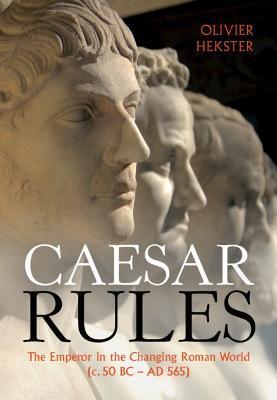Caesar Rules: The Emperor in the Changing Roman World (C. 50 BC - Ad 565)

Caesar Rules: The Emperor in the Changing Roman World (C. 50 BC - Ad 565)
For centuries, Roman emperors ruled a vast empire. Yet, at least officially, the emperor did not exist. No one knew exactly what titles he possessed, how he could be portrayed, what exactly he had to do, or how the succession was organised. Everyone knew, however, that the emperor held ultimate power over the empire. There were also expectations about what he should do and be, although these varied throughout the empire and also evolved over time. How did these expectations develop and change? To what degree could an emperor deviate from prevailing norms? And what role did major developments in Roman society - such as the rise of Christianity or the choice of Constantinople as the new capital - play in the ways in which emperors could exercise their rule? This ambitious and engaging book describes the surprising stability of the Roman Empire over more than six centuries of history.
PRP: 297.60 Lei
Acesta este Prețul Recomandat de Producător. Prețul de vânzare al produsului este afișat mai jos.
267.84Lei
267.84Lei
297.60 LeiLivrare in 2-4 saptamani
Descrierea produsului
For centuries, Roman emperors ruled a vast empire. Yet, at least officially, the emperor did not exist. No one knew exactly what titles he possessed, how he could be portrayed, what exactly he had to do, or how the succession was organised. Everyone knew, however, that the emperor held ultimate power over the empire. There were also expectations about what he should do and be, although these varied throughout the empire and also evolved over time. How did these expectations develop and change? To what degree could an emperor deviate from prevailing norms? And what role did major developments in Roman society - such as the rise of Christianity or the choice of Constantinople as the new capital - play in the ways in which emperors could exercise their rule? This ambitious and engaging book describes the surprising stability of the Roman Empire over more than six centuries of history.
Detaliile produsului










